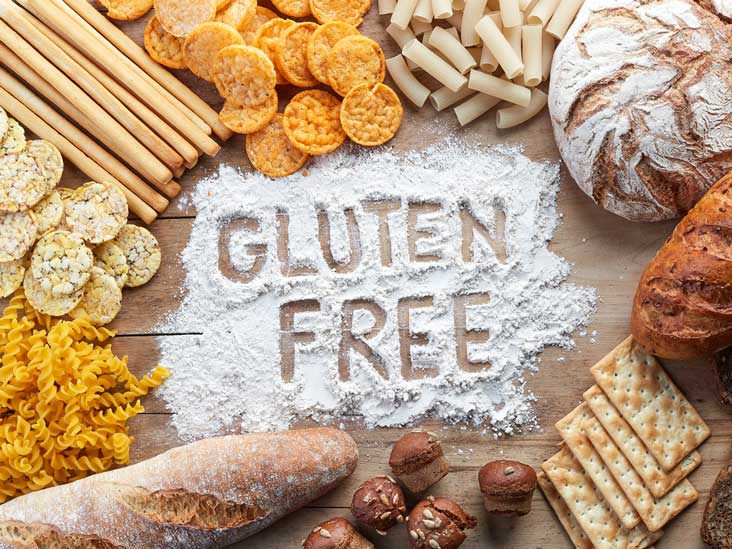Improve Your Bone & Gut Health, Adopt a Gluten Free Lifestyle
- November 21, 2021
- 7:20 pm
Improve Your Gut Health, Adopt a Gluten Free Lifestyle
This holiday season, I am inviting you to consider incorporating one dietary change that will have a huge positive impact on your family’s health……

adopting a gluten free lifestyle
We know how hard it is to make changes, but when done slowly over time it can be achievable. After years of coaching, I have learned that changes are made best when the whole family gets involved in the process, and that change occurs overtime so we must have patience and incorporate very slowly.
I have been gluten free for 20 years and there were times where it was overwhelming to maintain, mainly due to social pressures and the difficulty it was to find substitutes that tasted like something other than the consistency of cardboard. Today, approaching 2022, it is so much easier to maintain a gluten free lifestyle as more people have woken up to the science the marketplace along with restaurants have responded by offering delicious gluten free options and gluten free menu choices.
To help get you started this holiday season, I’d like to offer you my most popular gluten free recipe, my signature gluten free stuffing. I promise you that my gluten free stuffing recipe will be the best stuffing you and your family have ever had. Not only does it taste great, you feel great after you eat it! Make this holiday season a time to adopt a gluten free lifestyle and begin to train your children in the art of cooking and baking gluten free. They will love it and by the way, you do not tell them it is gluten free until after they eat it, they will never know the difference.
Keep scrolling for this awesome recipe and to learn more about gluten in the body
Gluten Free Fruit and Herb Stuffing
So why all the fuss about Gluten? What could be so bad about a little flour? New Research links Gluten to intestinal gut permeability or what’s also known as “Leaky Gut”.
I am sure you have heard of the negative effects of gluten but if you need to reassess the research, check my previous post from 2015. The bottom line is that the wheat grown in the United States today is not the same wheat product that our ancestors consumed. The hybridization processes used in wheat agriculture over the past 50 years to improve size, product yield, and resistance to pests and disease have altered the structure of proteins in wheat to the point that our genes no longer recognize these foreign proteins, which leads to our immune system attacking these (antigens) invaders. In addition, the bulk of the wheat grown in the U.S. is now sprayed with a cancer causing herbicide we know as Roundup.
New research confirms that this immune response to gluten can cause intestinal permeability or leaky gut in individuals with celiac disease, and Non-celiac gluten sensitivity (NCGS). According to Bueno (2008), Non-celiac gluten sensitivity (NCGS) is a clinical entity triggered by gluten but without autoimmune enteropathy2. Barbaro MR, Cremon C, Caio G et al (2015) found that patients with NCGS may have increased serum zonulin levels and increased intestinal permeability following gluten exposure.3, 4

Dr. Alesio Fasano, a Harvard gastroenterologist, has confirmed that for many of us, every time we eat gluten, our intestines can become inflamed and sometimes permeable causing small holes in the lining of the intestines, known as “leaky gut.” These tiny holes and this inflammatory process interfere with nutrient absorption and suppress the immune system. For most people, the holes close back up and the inflammation recedes. But for those suffering with other inflammatory conditions or genetic vulnerability, this process can become chronic, setting off a cascade of dysfunction and disease.
When you consider what many Americans consume daily – toast/muffin/croissant for breakfast (tiny holes inflammation), sandwich for lunch (more tiny holes and inflammation), pasta for dinner (more tiny holes and inflammation). And then there is that holiday cookie or cake for dessert, – (more tiny holes and inflammation).
Avoiding gluten wherever you can in meals means you have a healthier gut with improved nutrient absorption, better energy, a stronger immune system, and improved health and well-being.
At Live Well, our goal is to educate – not intimidate. Take charge of your health and make slow methodical changes to set a new standard for yourself and your family by beginning to replace your kitchen with gluten free options and start this holiday season off on a healthy path, a gluten free lifestyle.
Happy Holidays!
The Live Well Team
Gluten Free Fruit and Herb Stuffing

Ingredients
- 8 tablespoons (1 stick) grass fed butter
- 1 large onion, diced (2 cups)
- 4 stalks organic celery, thinly sliced
- 4 cups low sodium vegetable or chicken stock
- 16 oz (1 pound) gluten free rice cube stuffing mix
- 1 cup apple, coarsely chopped with skin
- 1 cup organic red or purple grapes, cut in half
- 1/4 cup organic dried apricots (chopped)
- ¼ cup cranberries or cherries
- 2 cups walnuts, chopped
- 1 tsp sea salt and 1 tsp pepper
- ½ cup fresh parsley, chopped
- 1 tbsp fresh sage, minced
- 1 tbsp fresh thyme leaves, minced
1/2 tbsp fresh rosemary, chopped
Preparation
- In a large skillet over medium heat, melt butter. Add onion and celery and cook slightly broken down and fragrant, 4 minutes. Stir in all herbs; parsley, sage, thyme, and rosemary and cook until fragrant, 1 minute more. Season with salt and pepper.

- Pour gluten free bread cubes into the skillet mixture and toss to combine. Slowly add and stir broth over bread mixture until completely coated, salt and pepper to taste.
- Transfer mixture to prepared baking dish and cover with lid. Bake at 350o until cooked through, 45 minutes, then remove lid l and cook until bread is golden, 15 minutes more.
If you want to bake a portion of the stuffing in the turkey, loosely fill the neck and main cavity with the mixture before placing in the oven. Although this looks great in a photo, it will dry out the turkey so basting and checking the temperature of the turkey is important. According to experts at thermo works, the turkey is done when the turkey breast is 157o and the thigh is 175o.
- Fasano, Alessio, (2020). All disease begins in the (leaky) gut: role of zonulin-mediated gut permeability in the pathogenesis of some chronic inflammatory diseases. F1000Res. doi: 10.12688/f1000research.20510.1
- Bueno L: Protease activated receptor 2: a new target for IBS treatment. Eur Rev Med Pharmacol Sci. 2008;12 Suppl 1:95–102. [PubMed] [Google Scholar]
- Barbaro MR, Cremon C, Caio G, et al. : The role of zonulin in non-celiac gluten sensitivity and irritable bowel syndrome. United Euro Gastroenterol J. 2015;3:A87 Reference Source [Google Scholar]
- Volta U, Caio G, Tovoli F, et al. : Non-celiac gluten sensitivity: Questions still to be answered despite increasing awareness. Cell Mol Immunol. 2013;10(5):383–92. 10.1038/cmi.2013.28 [PMC free article] [PubMed] [CrossRef] [Google Scholar]
- Thermoworks https://blog.thermoworks.com/turkey/turkey-temps/
Share on facebook
Facebook
Share on twitter
Twitter
Share on linkedin
LinkedIn



 by Ohava
by Ohava